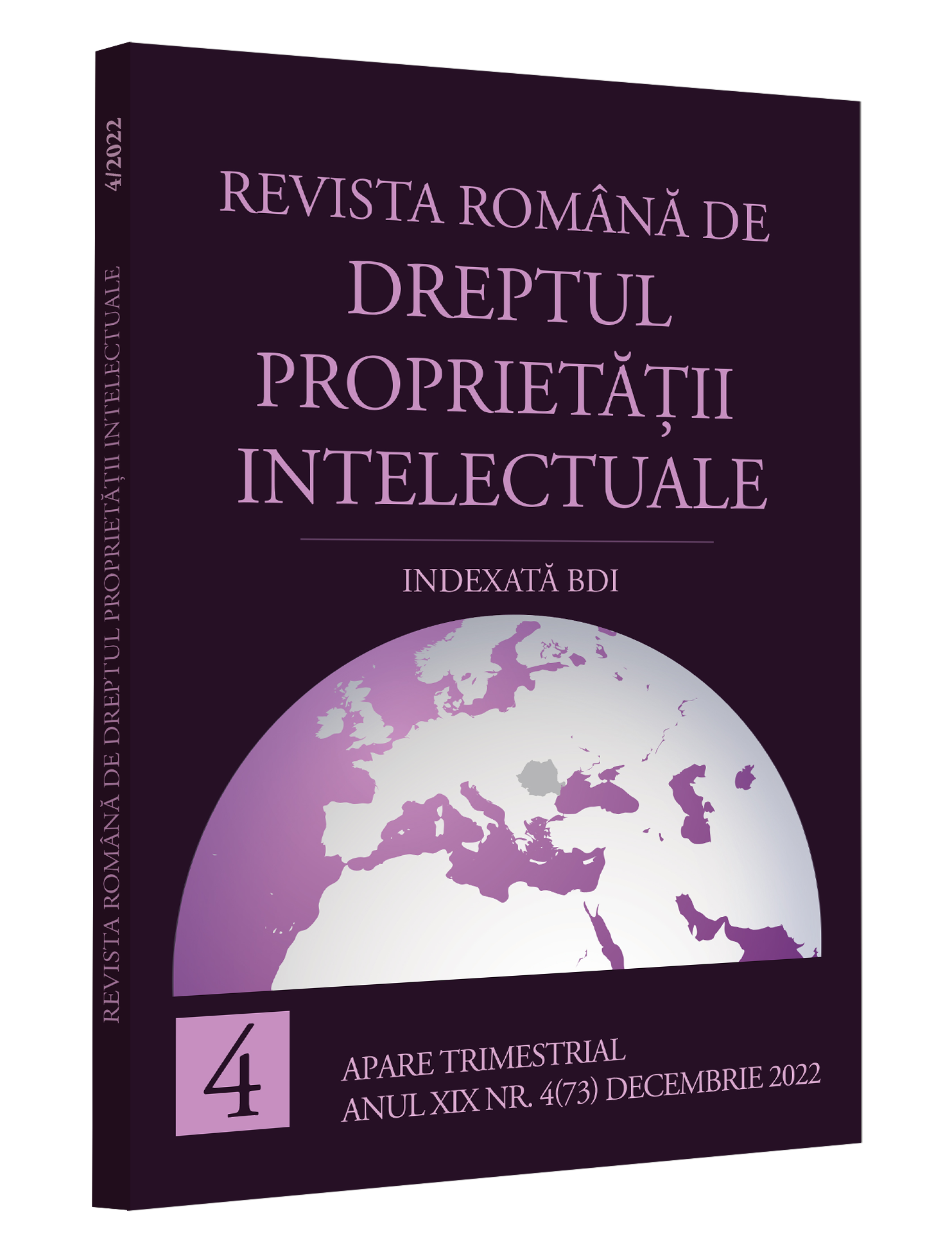Noile drepturi conexe ale editorilor de presă
New related rights for press publishers
Author(s): Sonia FloareaSubject(s): Law, Constitution, Jurisprudence, Civil Law, EU-Legislation
Published by: Asociaţia Ştiinţifică de Dreptul Proprietăţii Intelectuale
Keywords: DSM Directive; digital society; press publishers' related rights;
Summary/Abstract: On the 1st of April 2022, the Law no. 69/2022, implementing the Directive (EU) 2019/790 of 17 April 2019 on copyright and related rights in the Digital Single Market, introduced in Romanian legislation new rights related to copyright for the reproduction and making available to the public of press publications of publishers established in a Member State in respect of online uses by information society service providers. The introduction of the new press publishers rights at the level of the EU legislation was heavily opposed, having in view, inter alia, the negative experiences in enforcing similar national ancillary rights in Germany and Spain, prior the adoption of the EU Directive. This Study analysis the EU legal provision and its implementation in Romanian legislation, questioning if the purposes of the press publishers rights, as envisaged by the European legislator, may be attained by the new legal instrument. The Study argues that a legal solution that tends to create sources of revenue for the publishers in order to ensure the freedom and pluralism of the press, allowing the effective exercise of the fundamental right to freedom to receive and impart information, in order to make sound decisions in all aspects of life deserves support. In view of the lack of public debates in the Romanian society related to the proposed press publisher's rights, its framing, enforcement mechanisms and impact, the implemented legal provision needs detailed analysis and explanations, in order to understand what is at stake and, most importantly, how the right should be enforced in order to attain its legal purposes. The first part of the Study will focus on the details of the boundaries of the new related rights for press publishers, granted for the online use of their press publications by information society service providers, namely, the exclusive right to authorise or prohibit the reproduction of their press publications and the exclusive right to authorise or prohibit the making available to the public of their press publication. The Study will examine who are the beneficiaries and the addressees of the rights, what is the object of protection, what is the scope of the related rights, in particular, the exceptions and limitations for citation and the reporting of current events, that ensure the exercise of the fundamental right to access to information. The Study argues that difficulties may arise in practice in delineanting the press publishing rights and the exceptions to it, in view of the fact that news and press information, simple facts and data are excluded from copyright protection and that the exception or limitation in case of reproduction by the press, communication to the public or making available of published articles on current economic, political or religious topics or other subject-matter of the same character, to the extent justified by the informatory purpose, is also provided by the law. The second part of the Study will question if the legal provision creates further uncertainties in the digital marketplace, due to possible overlaps and conflicts with other intellectual property rights already enjoyed by journalists and by press publishers, with competition law and unfair competition law provisions. The Study argues that the legal provision complicates further the process of rights cleareance, with the result of increasing costs for the involved rights holders and, subsequently, for the users. The third part of the Study will examine how the new related rights were implemented in other national legislations, how were they enforced and what were the achieved results. The experience in enforcing the press publishers rights in France reveals that legal instruments provided by competition law for sanctioning the abuse of a dominant position on the market are needed in order to enforce the publishers rights. The last part of the Study opens the perspective on the proposals of the Digital Services Act which aims to regulate a digital space where the fundamental rights of users are protected and to establish a level playing field for businesses. The Study argues that European press publishers need to further adapt their business model to the predominant economy of online marketplaces, social networks and content-sharing platforms. The problems that remain unsolved are related to the role and responsabilities of the press in a democratic society, also, the fundamental education of users in the context of a platform-based economy, namely, their ability to think critically, to check and discern between real and fake news, also, their quest and need of solid and substantive, quality press information, which is the base of an informed and reasoned decision.
Journal: Revista Română de Dreptul Proprietăţii Intelectuale
- Issue Year: 2022
- Issue No: 4
- Page Range: 102-143
- Page Count: 42
- Language: Romanian
- Content File-PDF

